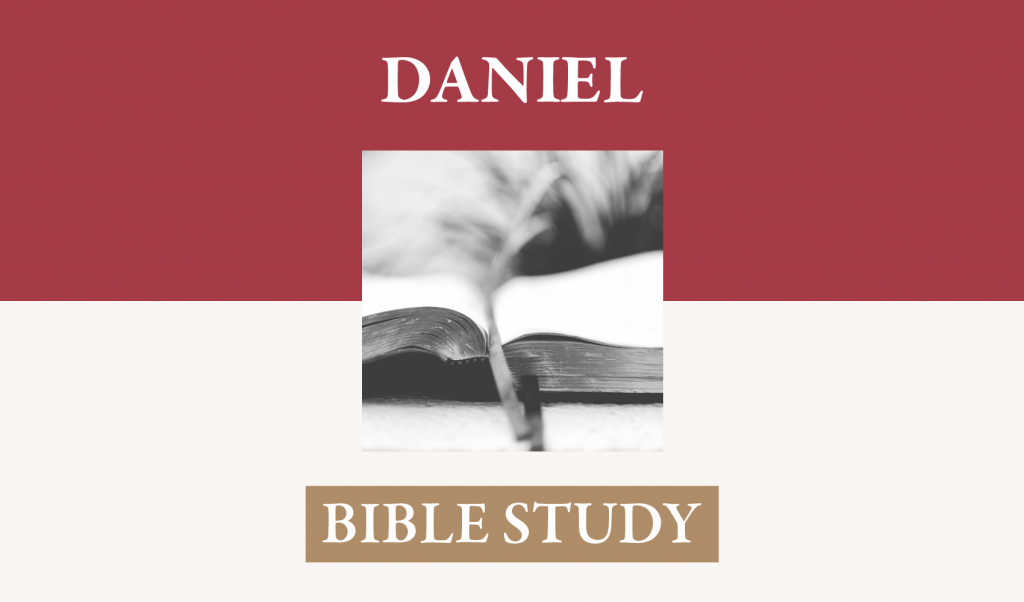The first part of Daniel 9, through verse 19 is a prayer of Daniel’s that is interrupted by the appearance of Gabriel. This prayer is a highly instructive example of earnest, God-centered solicitation for the spiritual blessings based on the promises, character, and ultimate glory of God. Daniel’s confession of sin is comprehensive and pervasive—involving all levels of society and pointing to the people’s breaking of the Law of Moses, their neglect of the ordained worship, their ignoring of the prophets. This judgment is deserved for they are guilty and God is righteous and holy. He has no confidence in an answer from God because of any righteousness of the people, for they have none, but only because forgiveness is with God and he delights in mercy [ note how Paul’s language in Titus 3:5 employs this prayer of Daniel] and he had established this people as a nation through whom he would magnify his name in the earth. Elements of the prayer are reminiscent of the Aaronic blessing in Number 6:22-27 and also to Solomon’s prayer at the dedication of the temple in 2 Chronicles 6, especially verses 36-40 that contemplate a time of captivity
I. 9:20-23 – Daniel’s Prayer Immediately Heard and an answer sent
A. The answer came “While I was speaking in prayer” (verses 20, 21)
B. Gabriel came in swift flight. He had been an earlier interpreter of a vision (8:16). Immediately upon the beginning of the prayer of Daniel, Gabriel was sent. Daniel’s prayer was for mercy and the answer, sent even before he formed the words of his prayer, was a manifestation of the depth, length, height, and breadth of mercy that Yahweh will show to his people.
C. Because God had put it into the heart of Daniel to recognize the truth of the prophecy about the seventy years captivity (9:2), and had been faithful to recognize his and all Israel’s sin and dependence on sovereign mercy, he now receives a revelation of the larger picture of restoration that God has purposed, seeing the present restoration of Israel only as a type of what is to follow.
D. Daniel received a word of assurance as well as a word of promise before the prophecy was given. For assurance, he was told that he was “greatly loved” (as also in 10:11, 19), Pre-mundane love is the foundation of any of the benefits that we receive from the Lord,: “In love he predestined us etc. . . .Out of the great love with which he loved us, even while we were dead in trespasses and sin . . . that you being rooted and grounded in love, may have strength to comprehend [Ephesians 1:4f; 2:4; 3:17f). For promise, it is implied that when he gives himself in contemplation of the coming word and vision he will understand. (23)
II. The Prophecy of Seventy Weeks.
A. A summary verse (24)
1. This prophecy covers from the immediate restoration of the exiles to
2. The prophecy immediately goes to the more deeply real and eternal issue of the forgiveness of sins by atonement and the presentation of a righteousness that will endure for ever. Christ, the Messiah, will come to put an end to sin, not only by judgment of offenders, but by making atonement fully to propitiate the wrath of God. Also he will established a righteousness that forever abides as the complete fulfillment of the Law of God, a righteousness brought to perfection in the human obedience of the Messiah and imputed to those, the elect, that must stand before the throne of God in righteousness in order to hear the verdict, “There is therefore now no condemnation to them that are in Christ Jesus” (Romans 8:1).
3. “To seal both vision and prophet” – When that event has reached culmination then revelation will be sealed up both in the way of the fulfillment of the Messianic task of prophet and priest, and in the way of ending all revelatory engagement in the closing of the apostolic witness through John, the last living apostle.
4. “To anoint a most holy place” – The fulfillment of the new covenant means that instead of a remnant of true believers scattered throughout an ethnic identification of the people of God [Israel], he has procured for himself by redemption and the more demonstrable operations of the Holy Spirit a “a holy nation, peculiar people,” (1 Peter 2:9). “God’s household . . . a holy temple in the Lord” (Ephesians 2:19, 21), the entire people having an “anointing from the holy one.” (1 John 2:20). The prophecy, thus includes a movement from
5. This entire process will take approximately 490 years. Of course the time could be exact and we could discern if we knew precisely the meaning of every event. The use of multiples of seven, however, appears to indicate that within this basic time span God’s work will be perfect and maturely fulfilled. That the Jews, and others of Jesus’ generation were looking for signs of his coming seems to be indicated by the kings of the East that saw his star and went to
II. A delineation of the weeks and the manner of their fulfillment
A. (verse 25) Two events are mentioned with time spans relating to each. For seven weeks, around 49 years, the process of the return to
B. The restoration symbolized by that substantial, but inferior, construction of the
C. “An anointed one shall be cut off, and shall have nothing [or ‘but not for himself’].” The Messiah will die, but not for anything that could be placed on his account. He had no sin and even the prince of this world could find nothing in him, and at his trial he answered nothing. (Matthew 26:62; 27:12; Luke 23:9; 15, 41; John 14:30). It was not because of his wrongdoing in a civil way, or for sin in a spiritual way, that Jesus the anointed one died, but it was for his people for whom he suffered in bearing their sins in his own body on the tree.
D. This cutting off occurs in the middle of the last week, that is, the last seven years. Jesus ministry covered approximately 3 years and a bit more so that his death ends the first half a week. The establishing of the church and its movement to the Gentiles with the knowledge that the end of the ceremonial law had occurred (verse 27 “And he shall make a strong covenant with many for one week, and for half of the week he shall put an end to sacrifice and offering (Acts 15:6-11; Hebrews 9:15, 23-26).
E. Since the Messiah already had destroyed the relevance of the sacrifices and other aspects of the ceremonial law, he sent, in the way he had sent Nebuchadnezzar for the exile of the Jews, Titus the Roman General and emperor to subdue
F. The instrument of this destruction would also be destroyed, the
III. (Chapter 12) After an extended prophecy of the rise of
A. When Antiochus Epiphanes seemed invincible, his very arrogance led to his end and assured the victory of the Maccabees. Daniel sees this as peculiarly a providential intervention of Michael, the savior of his people.
B. Daniel has a vision of the final resurrection in which those that are the redeemed will “awake . . . to everlasting life.” Others will awake to “disgrace and everlasting contempt.”
C. Daniel saw angels on either side of the river speaking to a man in linen asking about how long it would be to the end. This designation of time, already established as the time in which the Messiah brings about an end to iniquity by his atonement, and then the spread of the knowledge of this for the inclusion of the Gentiles. When “they finish shattering the power of the holy people” Michael will appear again in his fullness of redemptive glory just as he did in the destruction of Antiochus Epiphanes.
D. Though there will be great success of the gospel (“many will be purged, purified, and refined”) and they will persevere under trial, they will not have great earthly power and will be experiencing great trial and trouble when Michael again appears. “For it is only just for God to repay with affliction those who afflict you, and to give relief to you who are afflicted and to us as well when the Lord Jesus shall be revealed from heaven with His mighty angels in flaming fire, dealing out retribution to those who do not know God (“and none of the wicked shall understand” Daniel 12:10) and to those who do not obey the gospel of our Lord Jesus. And these will pay the penalty of eternal destruction, away from the presence of the Lord and from the glory of His power, when He comes to be glorified in His saints on that day, and to be marveled at among al who have believed.”
E. Those that would persevere under the cruel and mindless persecution under Antiochus would find in the end great blessing. Endurance in the faith was key. After his greatest act of sacrilege, the setting up of the pagan God Jupiter Olympius on the altar in the temple, Antiochus had just over three years left of life. They needed to endure until he died. And in just a little while respite would be gained through the Maccabean victory. Daniel, an old man, faithful to God and faithful to his earthly rulers, was given assurance that he should stand in his allotted place at the end of the days. His certainty is the same as that of “every one that shall be found written in the book” (12:1).
IV. Observations
A. Some have interpreted these prophecies combined with visions from Revelation as relating to a series of events during the days immediately preceding the coming of Christ. I see them as concerning the years between the time of Daniel and the coming of the Messiah, concluding with his atoning work and the setting up of the new covenant community, the church.
B. God’s intervention in the restoration of Israel to the Holy Land, the death of Antiochus, the “making and end of sins”, and the promise of a final resurrection show that God is ever present operating effectually to complete his purpose and save his people.
C. God’s assurance to Daniel, “For thou shalt rest, and stand in thy lot at the end of the days,” is an assurance to all believers that we have a “lot, a portion, we are partakers “of the inheritance of the saints in light” (Colossians 1:12)





























